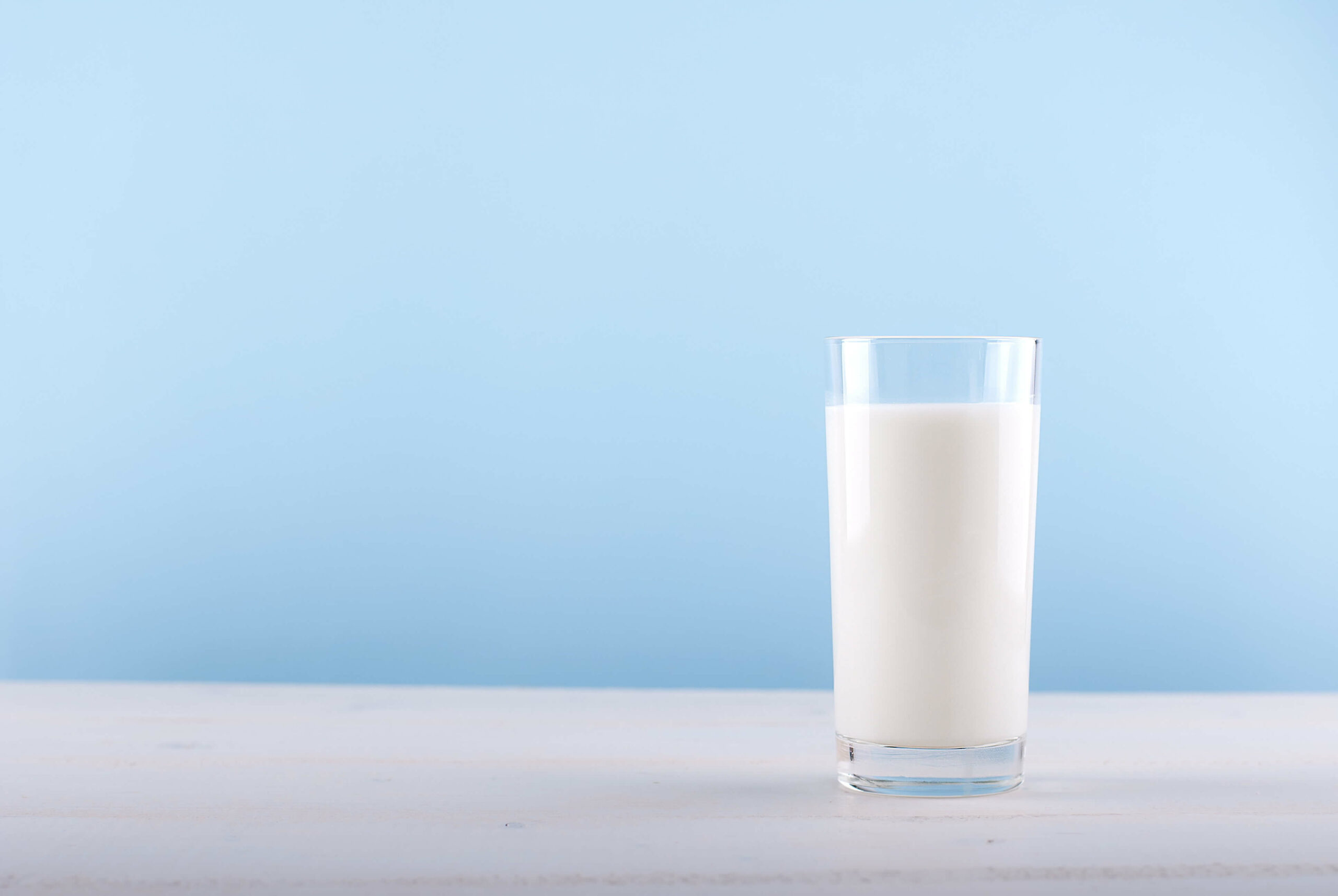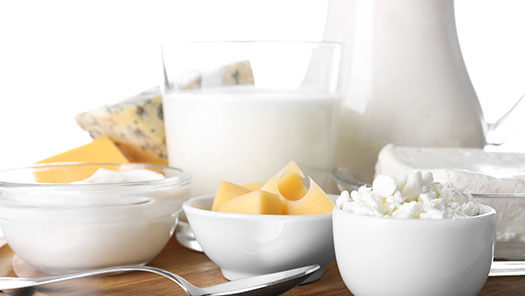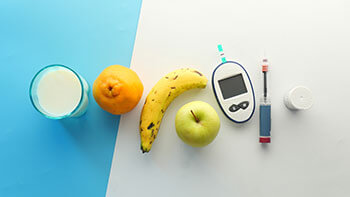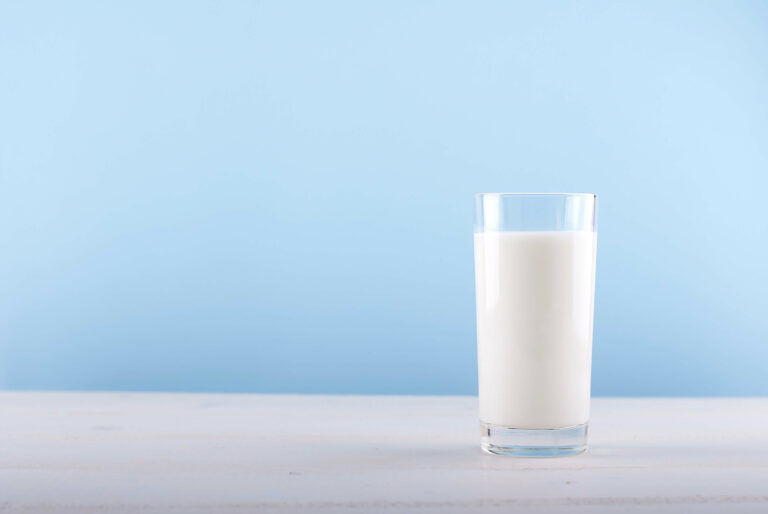Holistic Health Benefits of the Milk Matrix: Beyond Individual Nutrients For many years, nutrition research focused on how individual nutrients,..
GET THE FACTSMilk and Mucus
The current body of research indicates that milk and other dairy foods do not increase mucus production.
When a runny nose or congestion appears, many people believe they need to cut out milk to reduce mucus. It turns out that this is a myth, and studies show that milk does not cause mucus. Researchers think the false belief may come from how milk feels in the mouth and throat because of its naturally creamy texture.
What does the science show?
A review of the scientific evidence published in the journal of Archives of Disease in Childhood by the Department of Paediatric Respiratory Medicine, Royal Brompton Hospital, London, UK shows no increase in mucus production from milk.1 In fact the review referred to milk as “an important source of energy, and the principal source of calcium for children and adults, as well as a good source of several vitamins.”
The review explains that getting enough calcium is critical for normal bone health and for preventing osteoporosis. The author concludes that “the milk–mucus myth needs to be rebutted firmly by healthcare workers.”
In the 1990s, two studies were carried out to examine the milk and mucus link. A study published in 1990 focused on 60 adults with sinus colds. Researchers collected data on symptoms, milk intake and mucus, and found no correlation between milk or dairy intake and symptoms of congestion or the weight of nasal secretions produced.2
In 1993, a study divided subjects into a milk or placebo (soy beverage) group.3 Both groups reported that drinking milk or soy beverage caused:
- Coating over the mouth
- Coating over the back of the throat
- The need to swallow
- Thick saliva
This study shows that both beverages caused the symptoms, and the belief may be related to the texture of these beverages, but not specifically to milk. The naturally creamy texture of milk will coat the mouth. Milk mixed with saliva may feel thick, but it does NOT mean more mucus is produced. There remains no clinical evidence that milk leads to excessive mucus production or secretion.
Interestingly, in this study, people who believed that milk caused mucus (before the test) were more likely to report effects like a thick mouth coating.4 Bottom line: there was a thick feeling from milk, but it didn’t actually cause more mucus production.
Dispelling a myth
Health professionals can play an important role in dispelling this nutrition myth. The false belief that milk increases mucus is not based on evidence. Armed with the facts, you can assure patients that milk does not cause mucus and avoiding milk is not recommended.
Patient context: Origins of a myth
Beginning in 1946, millions of bookshelves in family homes across North America featured Dr. Spock’s parenting manual Baby and Child Care. Within the pages, Dr. Spock wrote that “dairy products may cause more mucus complications and more discomfort with upper respiratory infections…” and parents believed it to be a fact. Truth is, this fallacy was based on opinion, not science.5
In 1948, doctors tested Spock’s theory. They conducted a study where they carried out nose and throat exams on 157 people. The finding? There was no excess mucus noted in those who drank milk versus those who did not. Yet the myth remained in print, showing that even in the 1940s, influencers with a large following are trusted more than science. In fact, this milk and mucus advice remains in the 9th edition of Dr. Spock’s book, even though it’s simply not true.
CITATIONS
1Balfour-Lynn I. (2019). Milk, mucus and myths. Archives of Disease in Childhood. 104:91-93. http://dx.doi.org/10.1136/archdischild-2018-314896
2 Pinnock CB, et al. (1990). Relationship between milk intake and mucus production in adult volunteers challenged with rhinovirus-2. Am Rev Respir Dis. 141(2):352-356. doi:10.1164/ajrccm/141.2.352
3 Pinnock CB et al (1993). The milk-mucus belief: sensory analysis comparing cow’s milk and a soy placebo. Appetite. 20(1):61-70. doi:10.1006/appe.1993.1006
4 Wüthrich B, et al. (2005). Milk consumption does not lead to mucus production or occurrence of asthma. J Am Coll Nutr. 24(6 Suppl):547S-55S. doi:10.1080/07315724.2005.10719503
5 Balfour-Lynn I. (2019). Milk, mucus and myths. Archives of Disease in Childhood. 104:91-93.http://dx.doi.org/10.1136/archdischild-2018-314896
Resources
Milk and Mucus
Milk and Mucus The current body of research indicates that milk and other dairy foods do not increase mucus production...
GET THE FACTSMilk and Pediatric Nutrition
MILK AND PEDIATRIC NUTRITION Growing Strong: The Importance of Milk to Nourish Children Leading pediatric and health organizations recognize the..
GET THE FACTSMilk and Physical Activity
Milk and Physical Activity Whether your patients are occasional gym-goers or are training intensely for a triathlon or sport tournament,..
GET THE FACTSMilk and Lactose Intolerance
Milk and Lactose Intolerance Having lactose intolerance does not mean your patients need to give up dairy Highlights: Evidence shows..
GET THE FACTSMilk and Hypertension
MILK AND BLOOD PRESSURE Milk plays a role in disease prevention for many chronic conditions, including heart disease and hypertension...
GET THE FACTSDairy and Colorectal Cancer
DAIRY AND COLORECTAL CANCER Colorectal cancer is the second leading cause of cancer-related deaths in men and the third in..
GET THE FACTSHeart Health Benefits Of Milk
Heart Health Benefits Of Milk Diet and lifestyle play a role in heart disease prevention. It is estimated that 80%..
GET THE FACTSMilk and Plant Based Drinks
MILK AND PLANT BASED DRINKS There are many different plant-based beverages (PBB) available in the grocery store and it is..
GET THE FACTSDisease Prevention
Disease Prevention Milk plays a role in disease prevention for many chronic conditions, including heart disease, hypertension, type 2 diabetes..
GET THE FACTSMilk Nutrition Facts
Milk Nutritions Facts Milk is a source of essential nutrients. There is extensive evidence to show that including milk and..
GET THE FACTSRESOURCES
Download useful resources, research studies, and fact sheets on the benefits of dairy

Nutrients in Dairy
As a source of complete protein and essential nutrients, drinking milk is a simple way to support optimal health.

Dairy and Disease Prevention
Naturally nutrient dense, milk helps to combat nutrition deficiencies and ward off heart disease, hypertension, and colorectal cancer.

Dairy Milk and Plant Based Beverages
All forms of milk, including lactose-free milk, contain complete protein, vitamins, and minerals.

Heart Health Benefits of Milk
It is estimated that 80% of heart disease cases can be prevented with lifestyle changes that include a nutritious diet, regular exercise, and smoking cessation.

Dairy and Colorectal Cancer
Studies have shown that high consumption of total dairy products and total milk was associated with a lower risk of developing colorectal cancer.

Milk and Hypertension
Milk plays a role in disease prevention for many chronic conditions, including heart disease and hypertension. Learn how adding milk into your patients’ diets can help with blood pressure management.

Milk and Lactose Intolerance
Some people have trouble digesting lactose, but that doesn’t mean giving up dairy! Read on to learn more about lactose intolerance, how it’s formally diagnosed, and how you can provide the best nutrition advice to patients.

Milk and Physical Activity
Milk has a unique combination of nutrients that make it the ideal beverage for post-exercise rehydration and protein synthesis.

Milk and Pediatric Nutrition
Leading pediatric and health organizations recognize the benefits of milk and dairy foods for early childhood. Just how much milk is recommended for children, and which nutrients will kids get from a tall glass of milk?

Milk and Mucus
When a runny nose or congestion appears, many people believe they need to cut out milk to reduce mucus. It turns out that this is a myth, and studies show that milk does not cause mucus.

Diabetes Prevention and Milk
Take a closer look at the role of milk in the prevention of T2D. There are potential mechanisms through which milk and dairy foods may play a role in reducing the risk of developing type 2 diabetes





